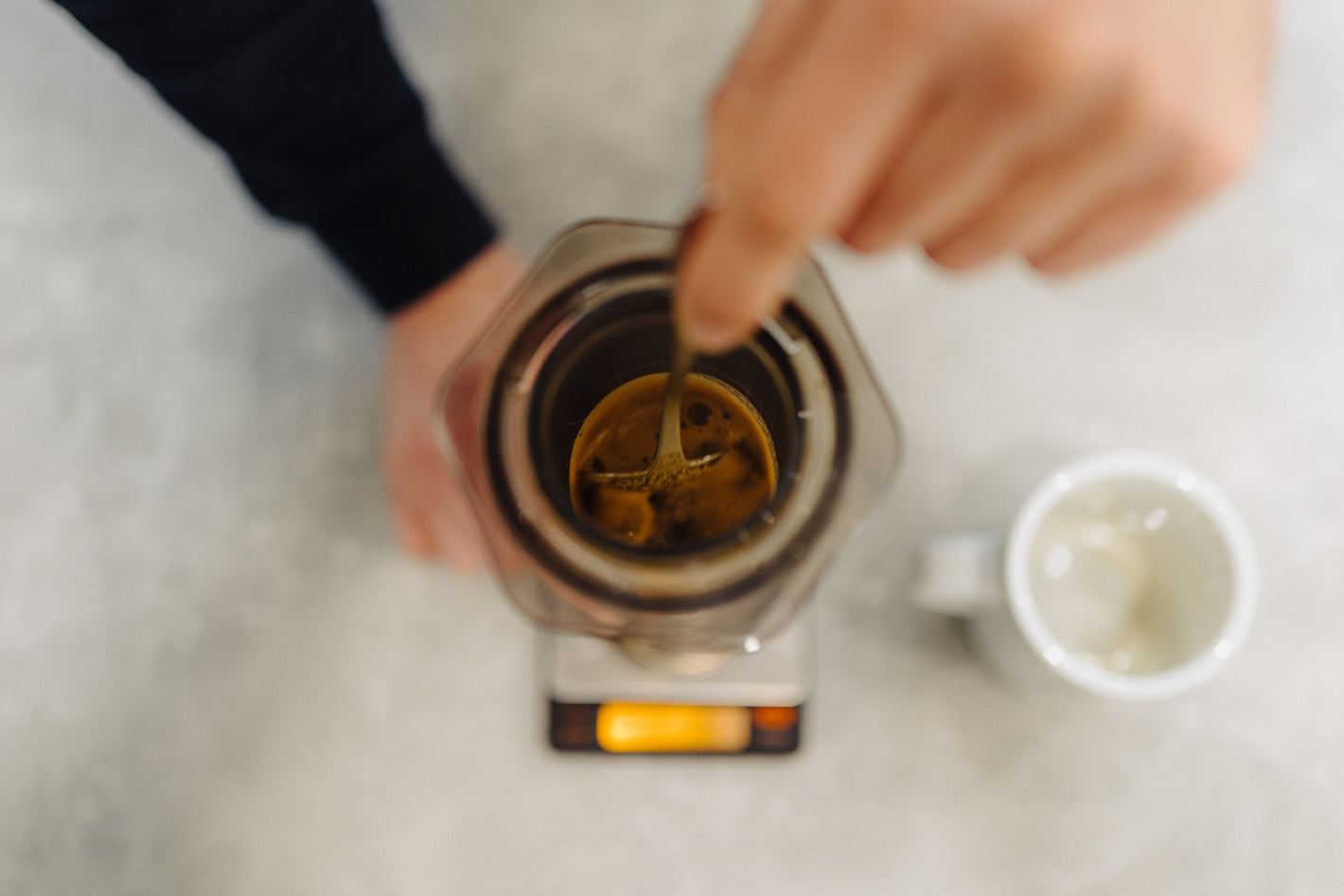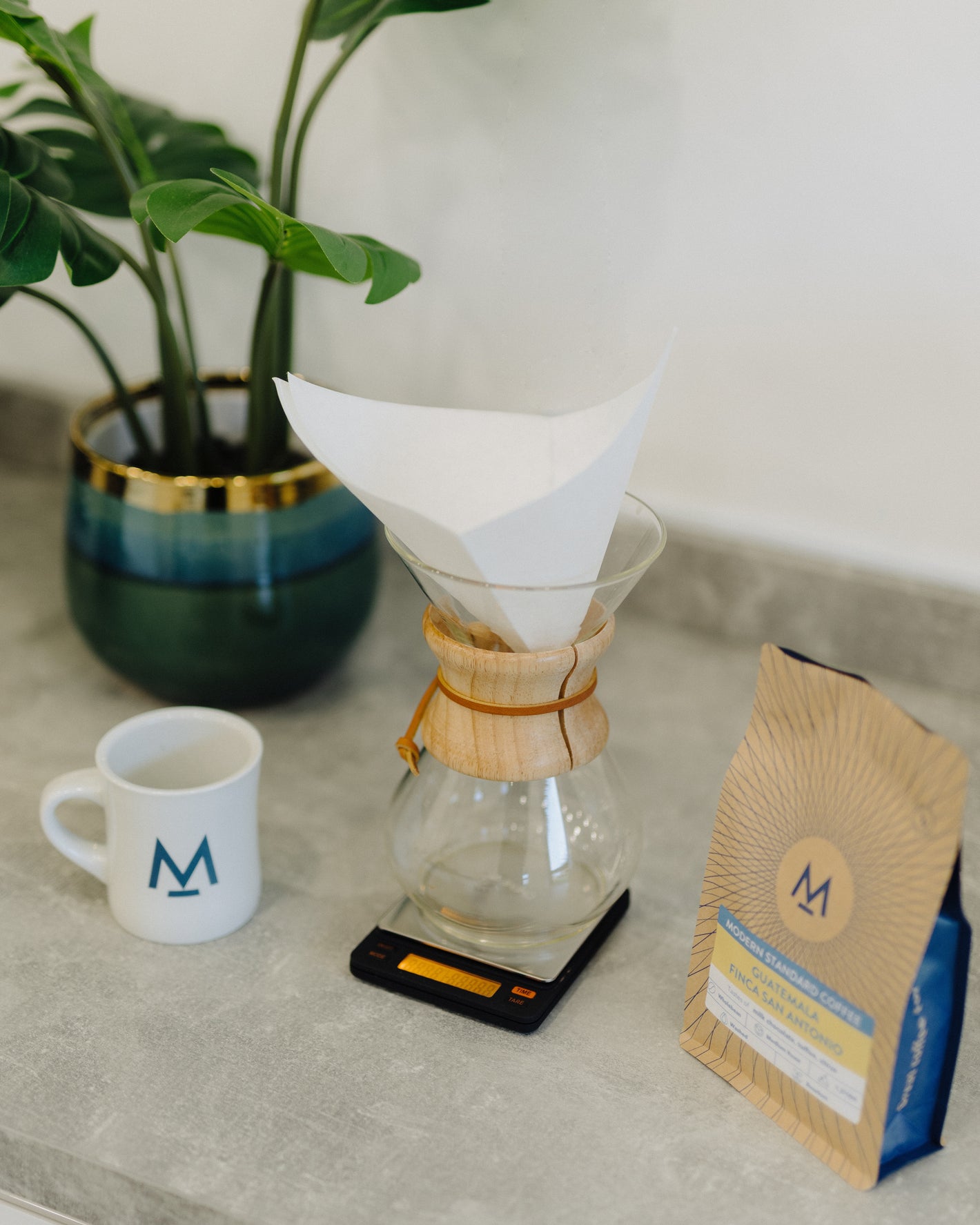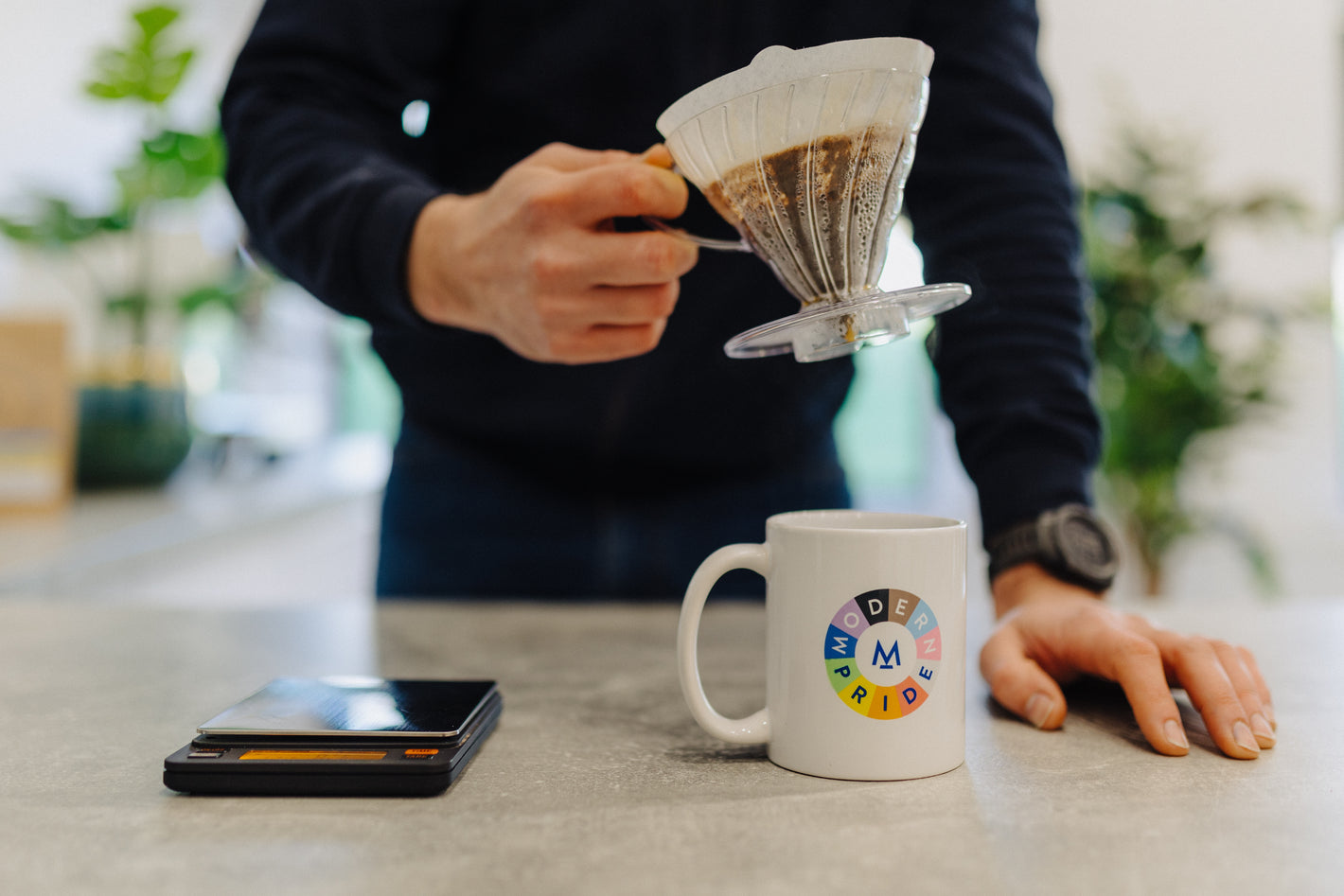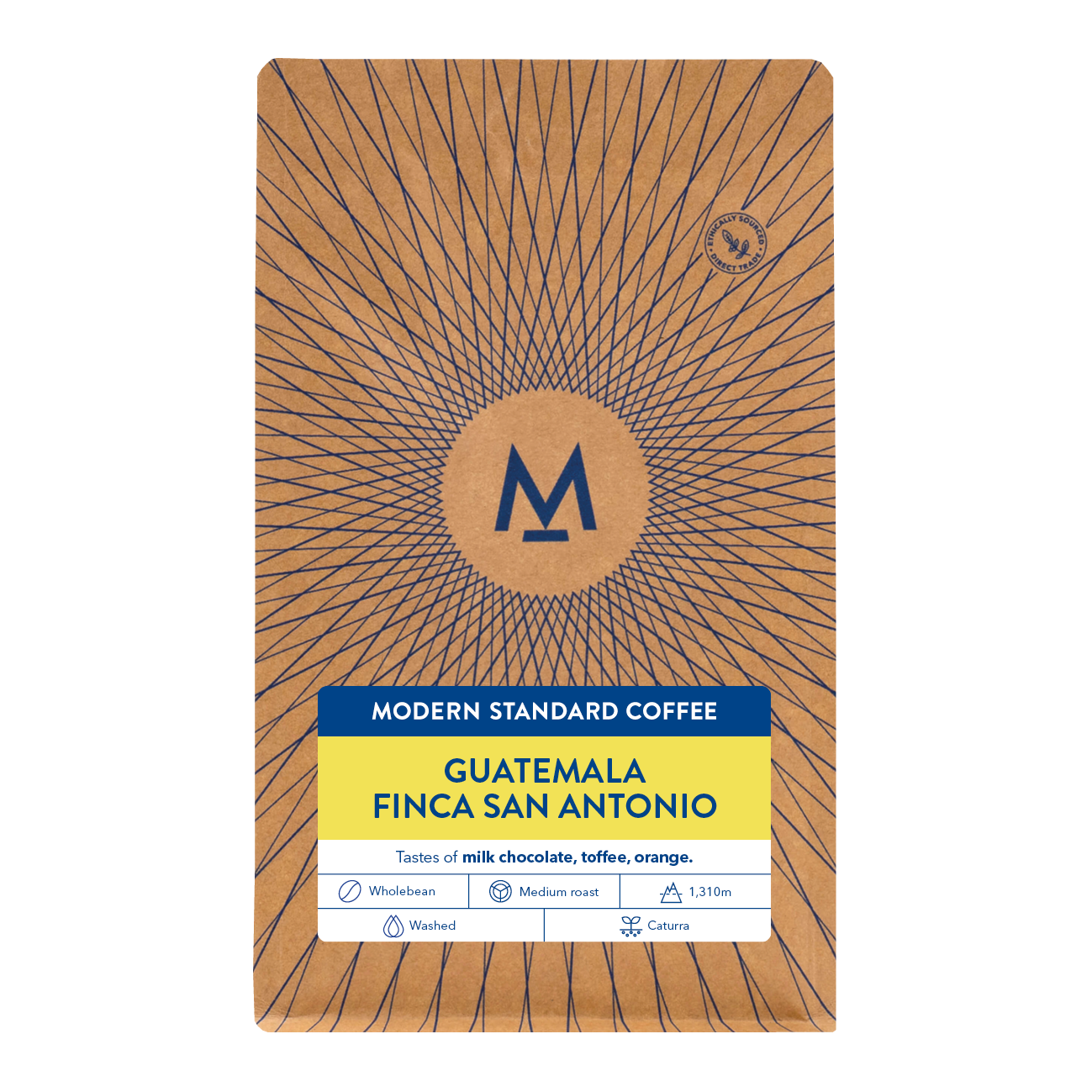
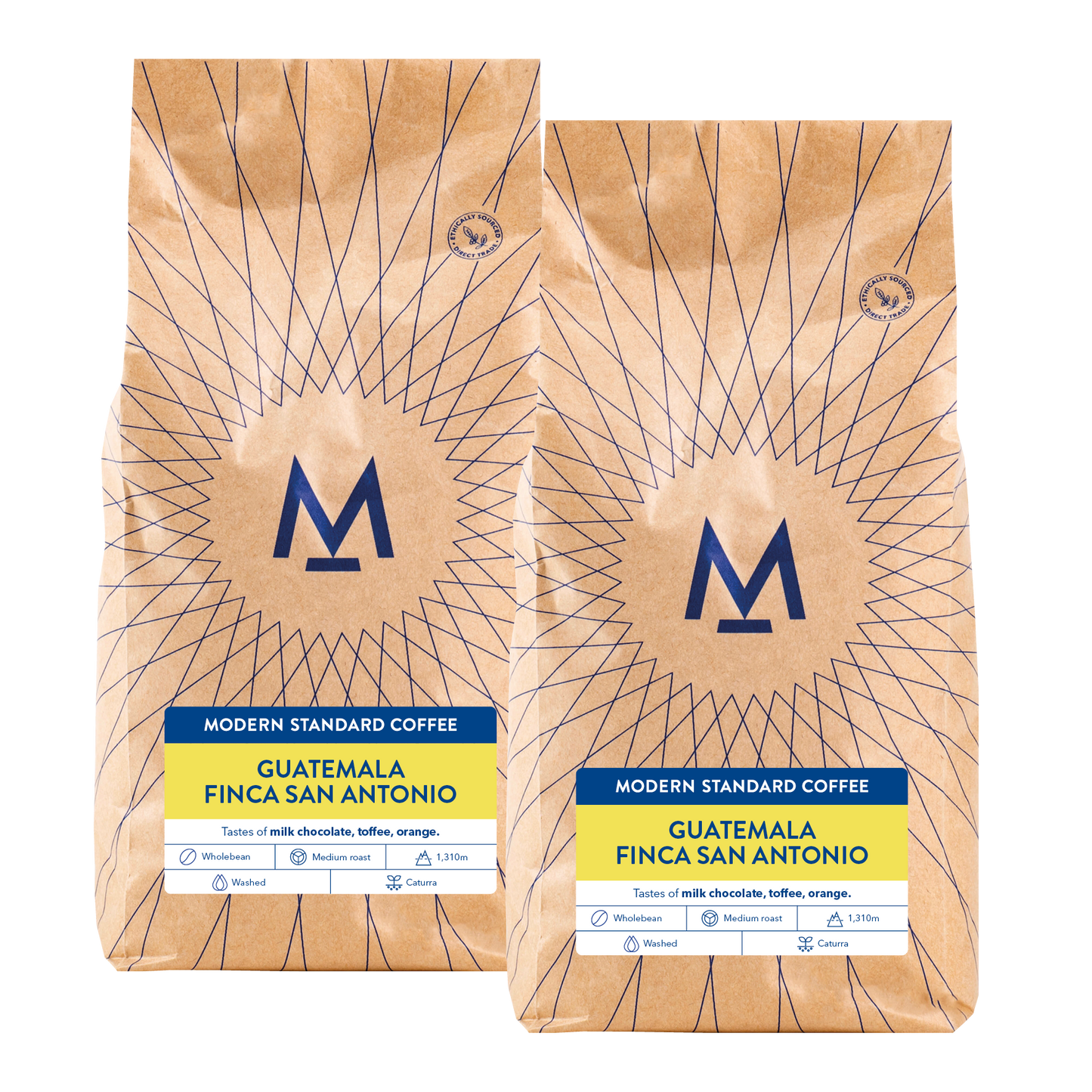
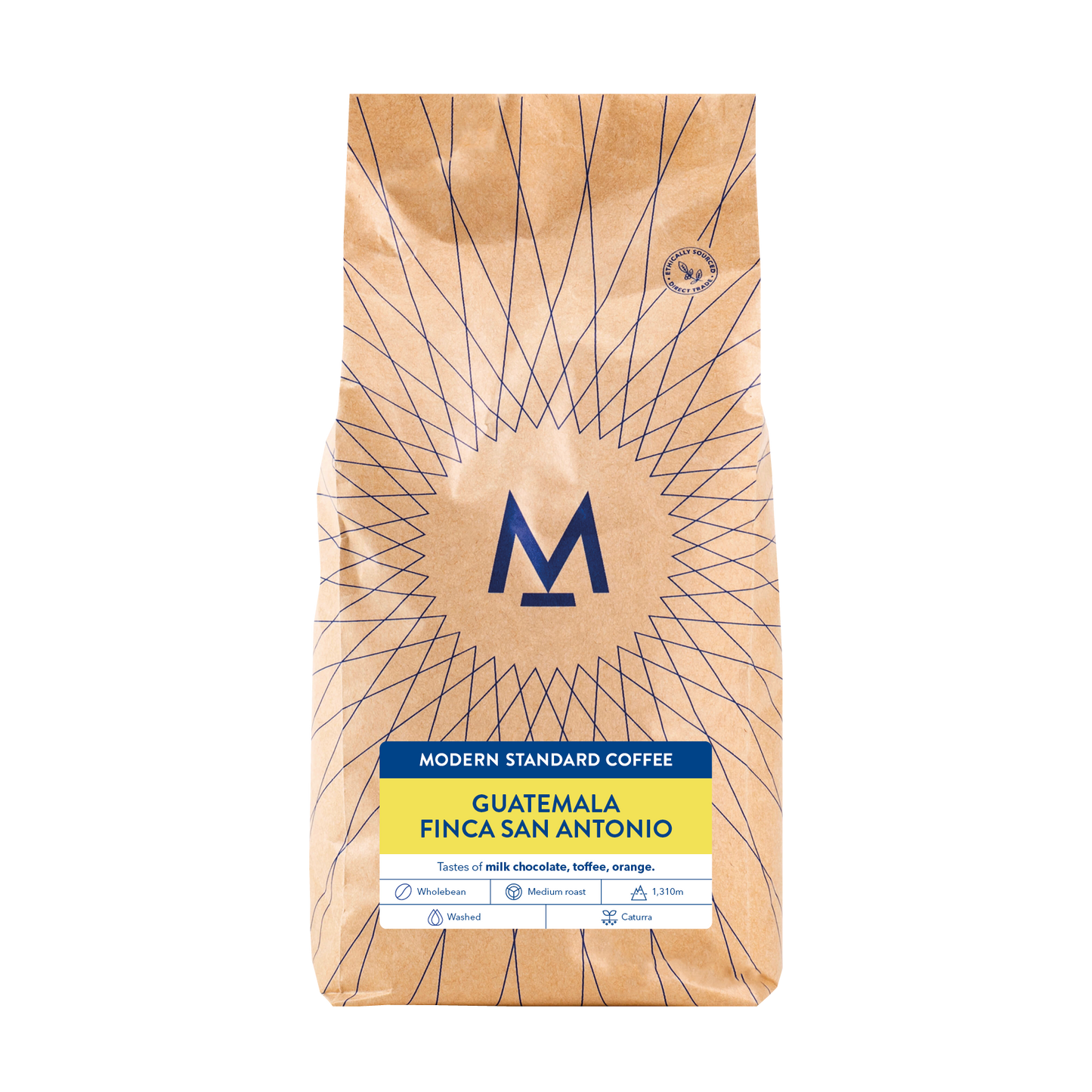
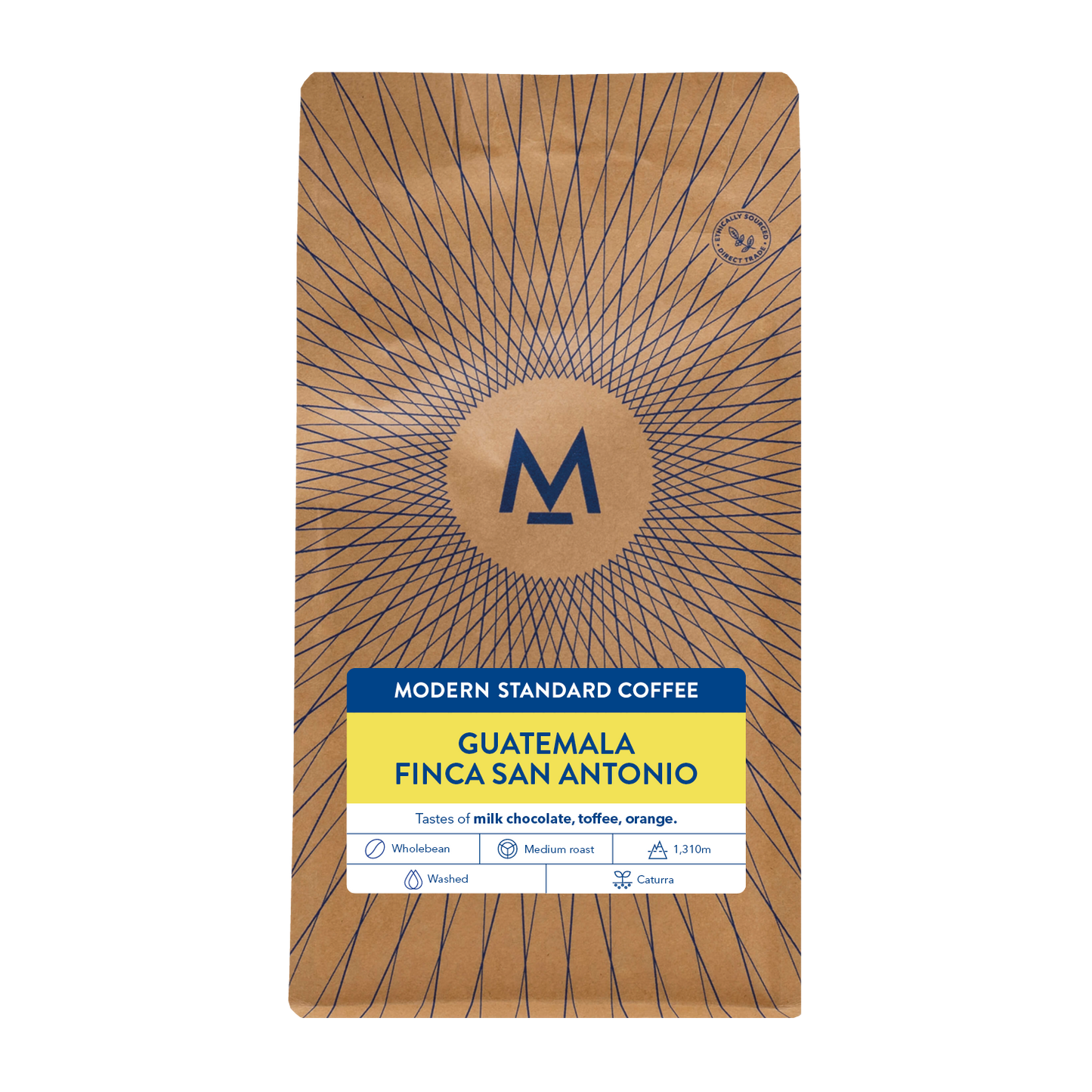
The overview
| Countries of origin | Guatemala |
| Producer | Antonio Pullin Pivaral |
| Altitude | 1160 - 1310m |
| Varietal | Caturra |
| Process | Washed |
The producer
Since 1992, Antonio Pullin Pivaral has pioneered organic farming practices at his farm, Finca San Antonio. He has been attentive both to managing shade so as to ensure the correct balance of shade and light for his trees to ensure optimal growing conditions.
The coffee
Finca San Antonio lies between 1,160 and 1,310 metres above sea level in the fertile mountains of Central Guatemala. Coffee is planted out over 91.5 hectares, growing peacefully in the shade of a diverse mix of native trees. All work on the farm is lovingly carried out by hand with meticulous attention to detail.
The coffee has been certified organic since 1992 and, as such, uses no chemical fertilisers or pesticides. Of course, farming organically tends to be far more labour intensive than conventional farming methods. The farm produces its own organic fertilisers using vermiculture (worm farms) and left-over coffee pulp, leaves, remnants from pruning, cow dung etc.
Why we love it
I only drink iced coffee, and this as an iced espresso is lovely; lots of chocolate notes and honey sweetness.
Susan's Brew Guide
Out: 31-33g
Time: 24-26s
Water: 305g
Ratio: 1:17
This coffee is best drinking 6 - 8 days from roast, it settles and brings out lots of sweetness.

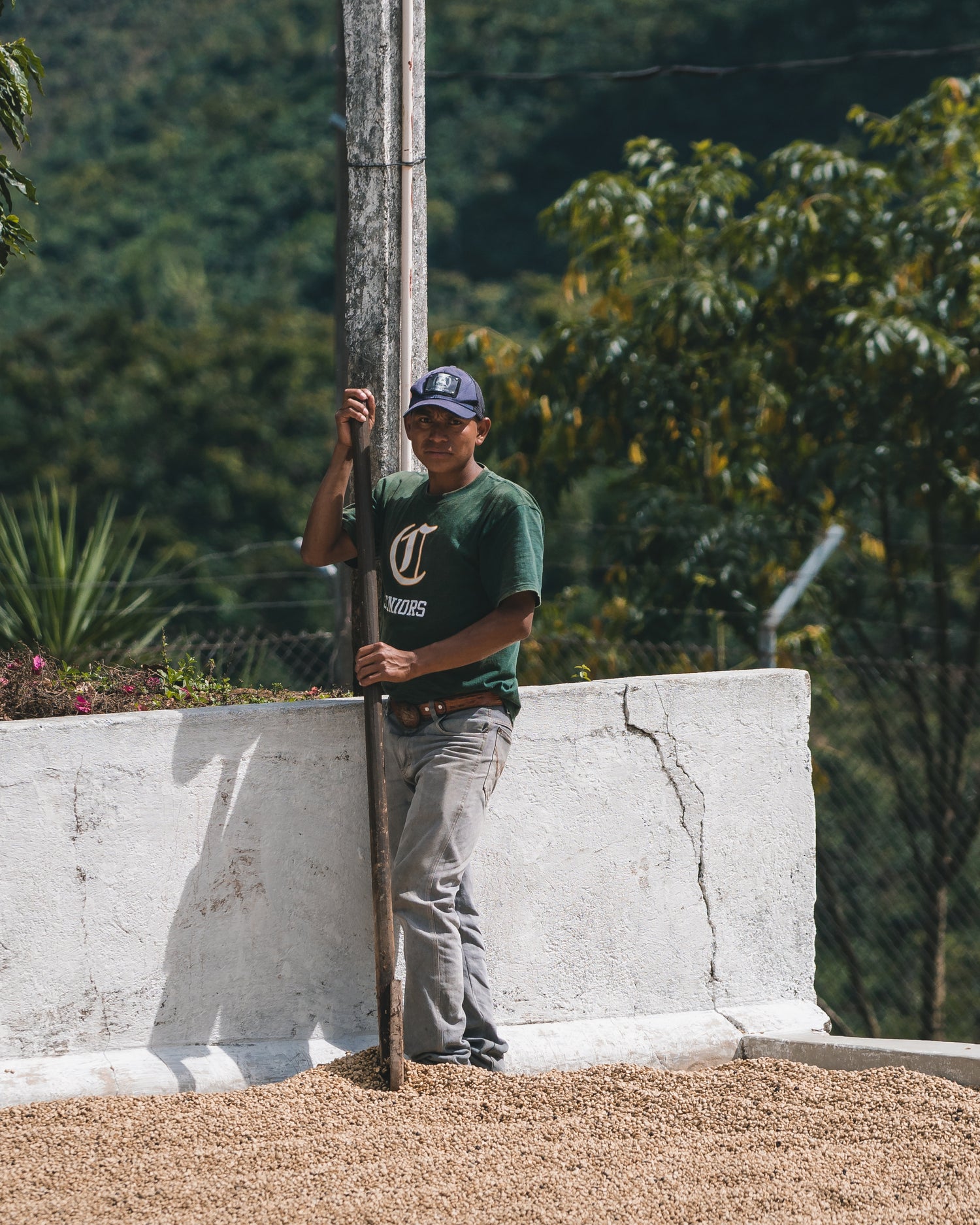
More about Finca San Antonio
Finca San Antonio also operates its own organic weed control - based on a combination of shade cover, good plant density, weeding by hand and thick ground coverage with organic mulch.
However, San Antonio’s continued organic certification is particularly impressive in the present coffee growing climate in Guatemala, where coffee leaf rust has affected some 70-80% of production across the country. A single spot of rust on a leaf is able to spark an additional 4-6 generations of spores over a 3-5 month period. This means that if the rust isn’t controlled, hundreds of thousands of mature spores can be released at a time. Bourbon is particularly susceptible, and a plant can be killed within a couple of seasons if the rust isn’t adequately dealt with. Controlling rust – so obviously virulent – without chemical fungicides is incredibly difficult. There is evidence that increased exposure to bright light can help control sporification, but overpruning of shade trees and over-exposure to sun can conversely lead to sever declines in long-term plant health and coffee quality.
Sr. Pullin Pivaral has been attentive both to managing shade so as to ensure just the right balance of shade and light for his trees and innovative pruning of the coffee trees themselves to maintain temperatures at optimal levels for controlling the fungus’ spread. Sparing applications of organic-approved copper sulfate fungicide are also made.
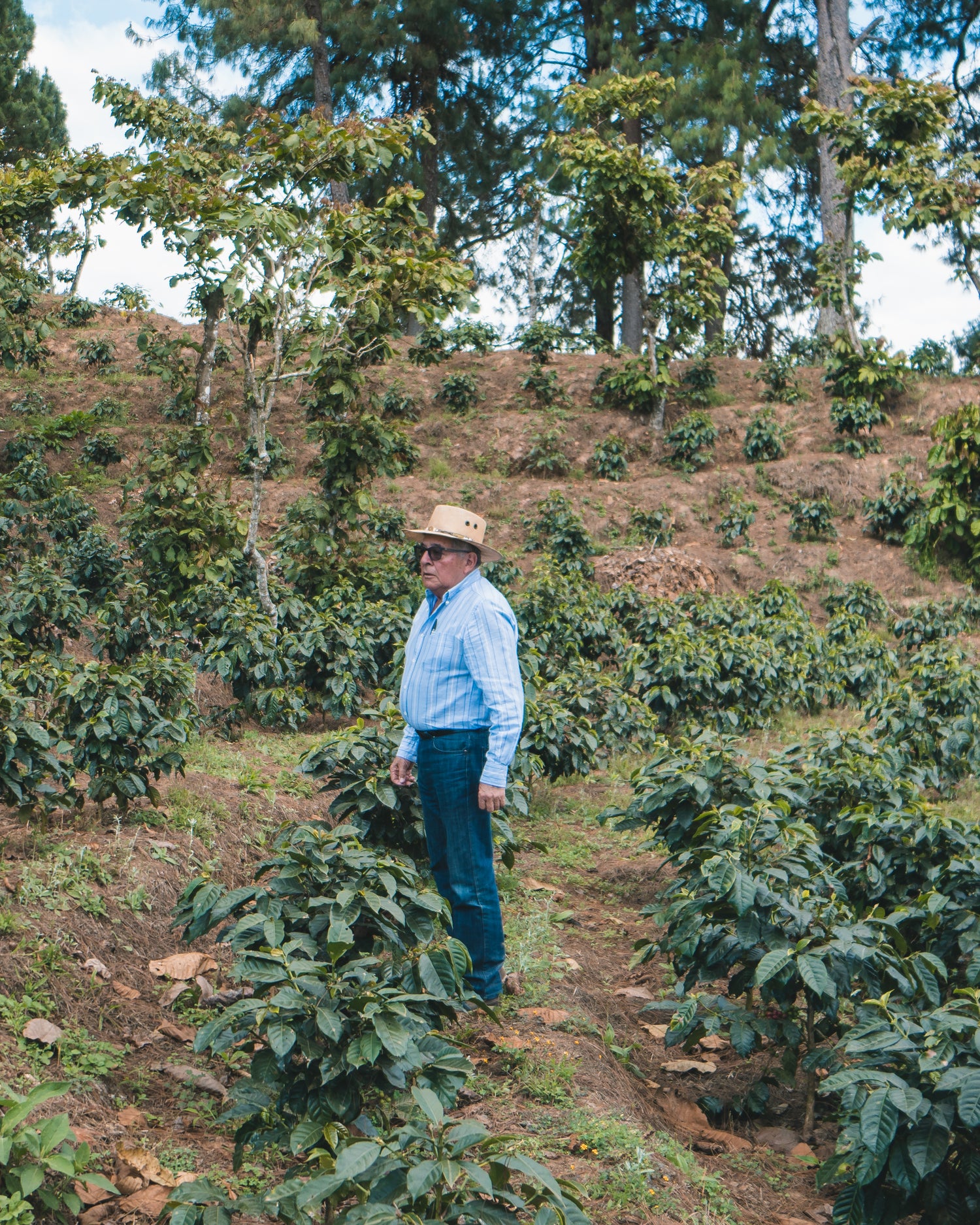
But most innovative, perhaps, are Sr. Pullin Pivarals’ renovation techniques, which see quality-preferred varietals such as Caturra and Bourbon grafted onto Excelsa root stock. This method of renovation through grafting has been used to help build resistance to nematodes in other instances, but using it to boost resistance to coffee leaf rust so far also shows promise. San Antonio is a haven for native flora and fauna, and is an excellent spot for bird watching thanks to its extensive natural forests and non-invasive organic farming practices. The farm also prioritises the health and well-being of its workers. All of the farm’s permanent workers are provided with housing - equipped with drinking water, electricity and modern bathrooms – and a school has been established for employees’ children. The main harvest on the farm runs from November until February. The coffee is picked by hand when it is fully ripe, pulped on the same day, fermented and fully washed. The wet parchment coffee is then moved to the farm’s extensive patios where it dries in the sun until it reaches the optimal humidity level. All of the waste water from the wet mill is treated at the farm’s three oxidation lakes in order to keep its water courses free from pollution.






